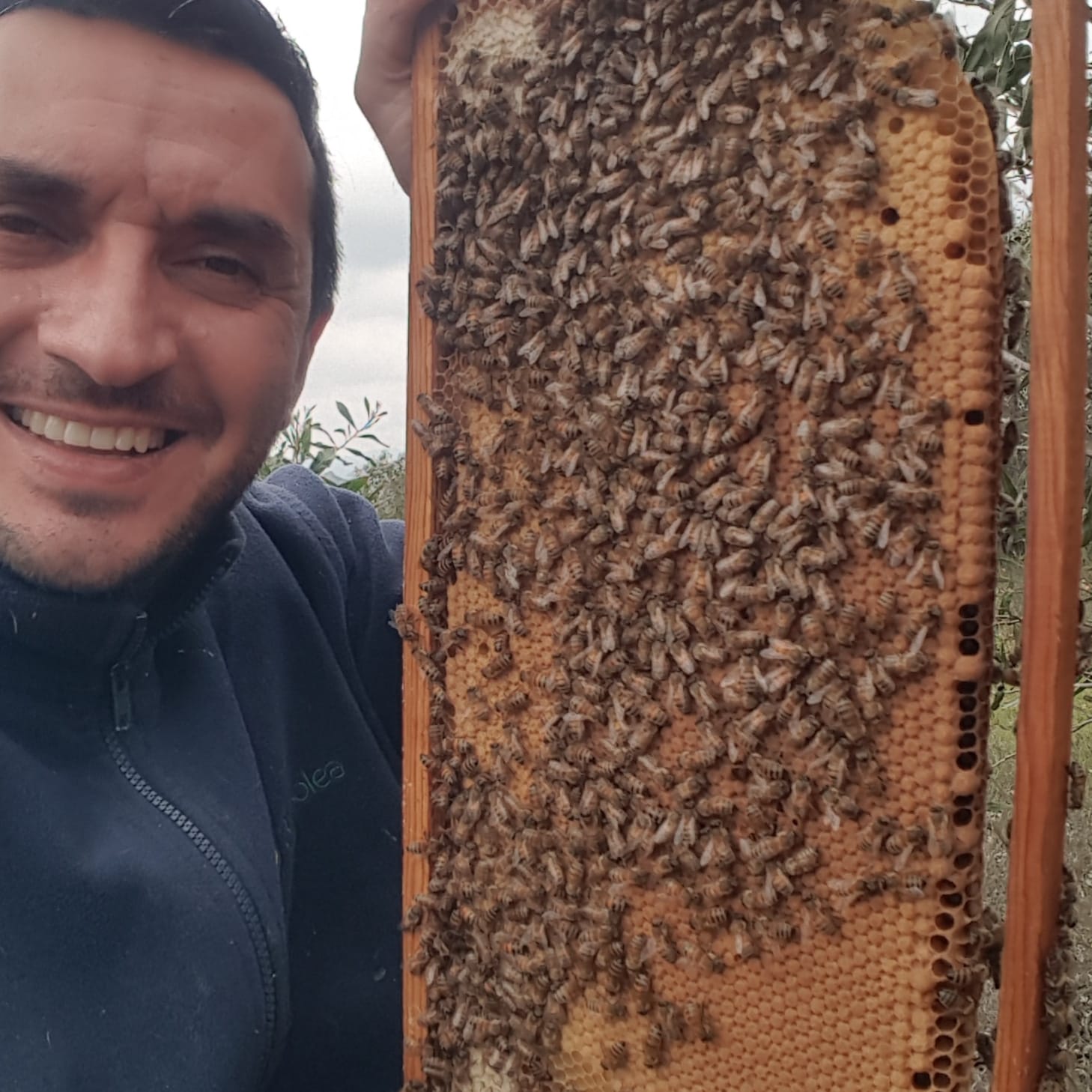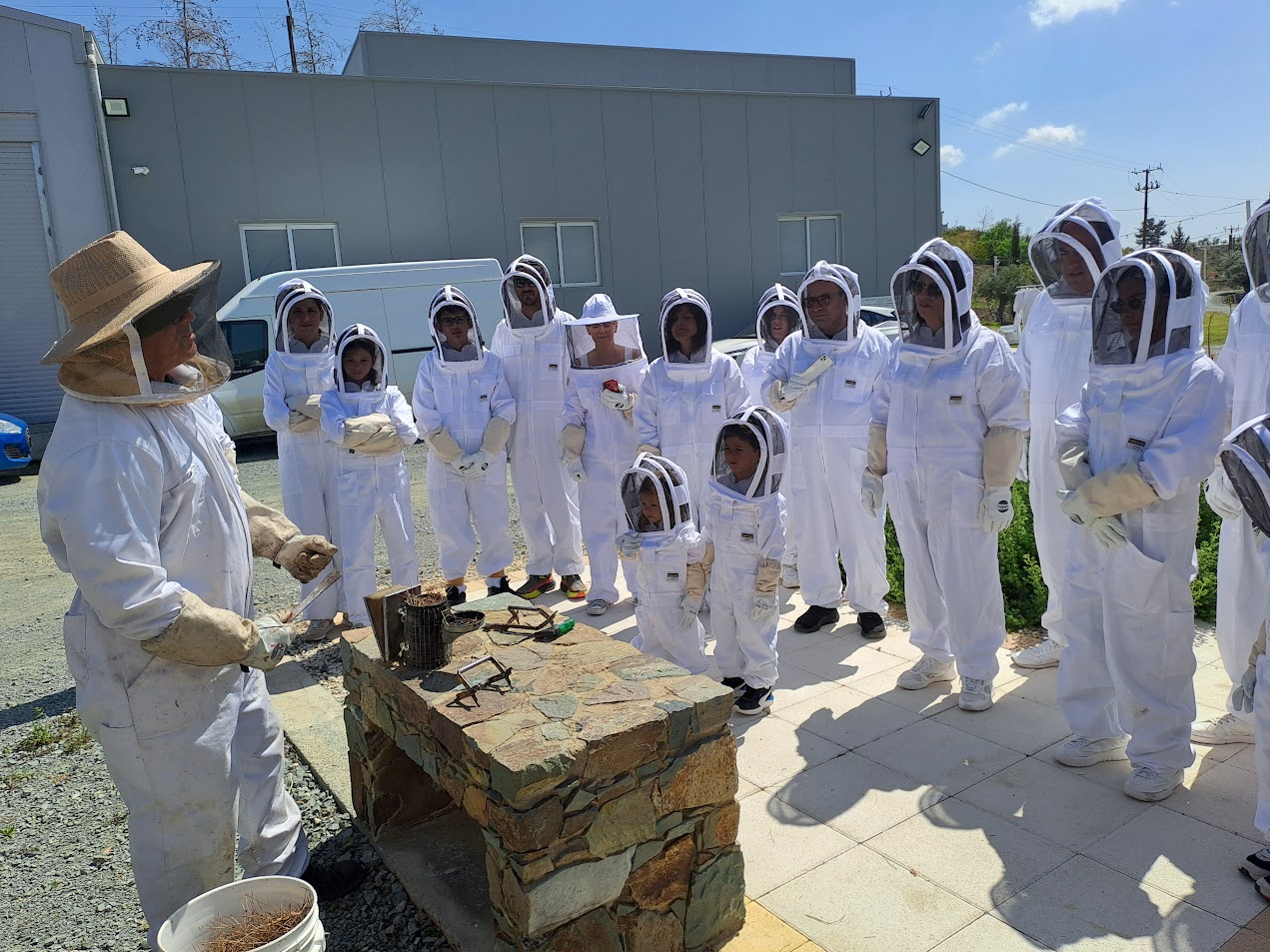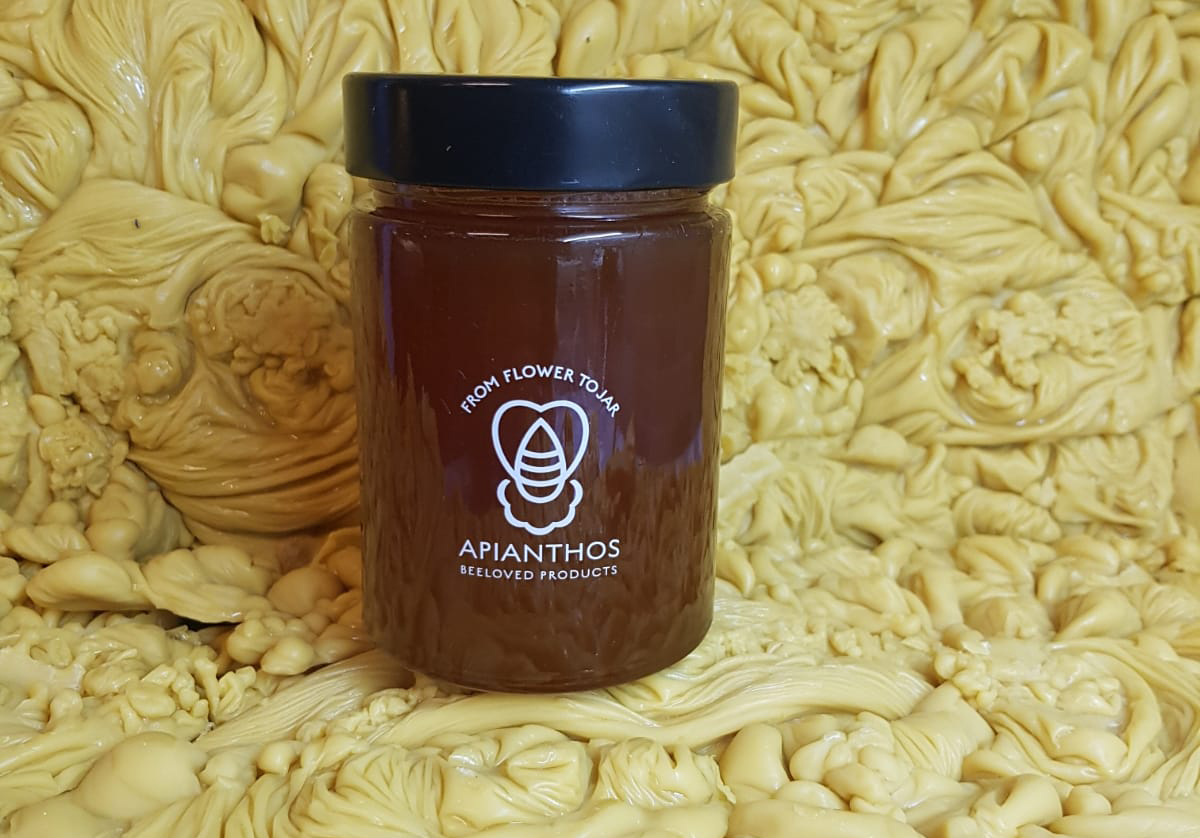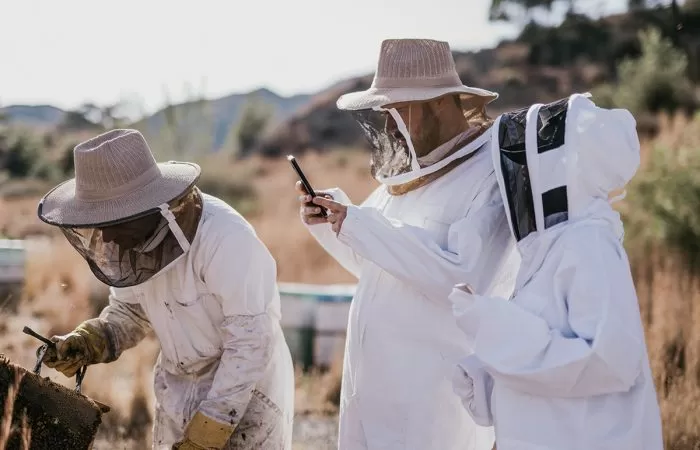With the island’s insects just fighting to stay alive, people need to move from fear to fascination say local beekeepers
By Christina Michailidis
Without bees, the world as we know it would quietly collapse. These tiny pollinators underpin almost 75 per cent of global crops and over 80 per cent of flowering plants. Even though they have been buzzing around the earth since the time of dinosaurs, bees are now among the most vulnerable species in modern ecosystems. From the almond orchards of California to the citrus groves in Cyprus, bee populations are shrinking as climate change and human pressure alter their fragile environments.
Around the island, beekeepers are seeing firsthand the effects of climate change. Extended heatwaves dry up nectar sources, leaving bees struggling to survive long before honey can be harvested. Despite all these challenges, local beekeepers are adapting; combining centuries-old methods with sustainable innovations like nomadic hives in the mountains, educational bee parks and agrotourism projects. Local producers are finding new ways to protect their bees and the biodiversity that depends on them.

In Cyprus, the signs are impossible to ignore. “Last summer’s heatwave reached 46C, our bees were fighting just to stay alive,” says Demos Metaxas of Apianthos, whose nomadic hives follow the island’s seasonal blooms in the mountains. For them, bee keeping in act of coexistence, not control. “We work with nature,” he explains, “our methods are synergetic and holistic”.
The situation faced in Troodos is the same around the island. Beekeepers report dwindling colonies and weaker honey harvests. Various factors are to blame: harsher summers, pesticide misuse and disappearing wild flora. Still, initiatives like Apianthos’ nomadic hives (colonies that are moved around to follow flower blooms) and Oros Machera’s Adopt a Hive programme, where companies can sponsor a hive and help raise awareness about the importance of bees, suggest a growing movement toward education and ecological responsibility.
Moving the hives with the season’s “keeps our colonies strong”, says Metaxas. At their Botanical Bee Park in Galata, each piece of the process comes together with the same philosophy of balance. The hives are built from untreated wood, the wax is reused, and pest control is organic and made in house.

But even for such attentive beekeepers, the climate’s volatility is reshaping everything. Last year’s peak temperatures meant nectar evaporated before bees could reach it and honey yields fell sharply across the island. “We lost hives, and the production dropped dramatically,” Metaxas recalls. “You can give them shade and try to help but you can’t control the weather”.
A few valleys away, the team at Oros Machera in Melini, shares the same concern. Established over 40 years ago, the apiary has watched honey yields fall as extreme weather and land development erode fauna. In the past, bees produced more honey and were generally healthier,” says Maria Solomonidou, “but summers are hotter now and flowers fewer”.
To protect local bee populations, Oros Machera combines production with education and raising awareness. Through its Adopt a Hive initiative and public workshops, the group educates visitors about pollination and biodiversity while offering a glimpse inside an active hive. “When people see bees up close their fear disappears,” Maria says. “They understand how vital they are to everything we eat.”

Awareness appears to be beekeepers’ most powerful tool: when people understand that pollination underpins nearly every fruit, nut and vegetable they consume, they begin to care. They have seen how one conversation or workshop can shift a person’s view of bees, from fear to fascination. “When people learn, they protect”. Metaxas says.
Beyond honey and pollination, bees have played a large role in human health and culture for centuries. Honey, beeswax and propolis have been used for eons for their anti-microbial and healing properties, from treating wounds and coughs to more modern use in pharmaceuticals and skincare. Recent studies have even shown that melittin, a compound in bee venom, can help destroy cancer cells in lab conditions.
There are small, simple ways for individuals to help protect bees: planting native, bee-friendly flowers, avoiding pesticide use in gardens, letting a few weeds bloom instead of cutting them back. Supporting local honey producers also helps maintain healthy colonies and biodiversity. “Even one beehive in a backyard,” Metaxas says, “raises awareness of how connected we are”.
Even though the challenges are many, beekeepers across Cyprus remain cautiously hopeful. Their work reflects a global awakening that the health of bees is inseparable from the health of ecosystems. Across Europe, conservationists are encouraging the creation of “bee corridors”: stretches of wildflowers and native plants that connect fragmented habitats and allow bees to travel safely between feeding grounds.
“Awareness”, Metaxas says, “is where protection begins”.






Click here to change your cookie preferences